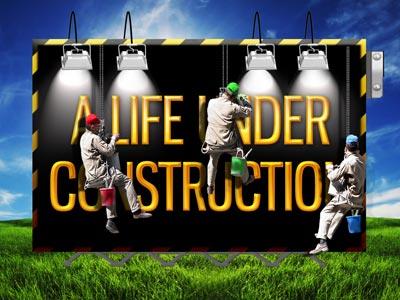-
Sermon On Change
Contributed by William Meakin on Oct 6, 2022 (message contributor)
Summary: Change is defined as to make someone or something different.
Sydney J. Harris, an American journalist once remarked: “Our dilemma is that we hate change and love it at the same time; what we really want is for things to remain the same but get better.” James 1:17 confirms: “Every good gift and every perfect gift is from above, coming down from the Father of lights with whom there is no variation or shadow due to change.”
Change is defined as to make someone or something different. It includes such factors as substitution, alteration, or modification. Changes are inevitable and may occur often in our lives, whether we wish them to or not. They may incur new experiences. How we cope with them is down to each individual. Some changes may be deemed as for the better, whereas others are considered detrimental and not welcome.
Personal choices can involve major changes in one’s life. However, changes in our lives at the direct instigation of God, will probably produce the biggest impact of all. One of the most prolific stories in the Bible concerning change is recorded in Acts 9:1-30 which relates the conversion of Saul of Tarsus into his new apostolic role of Paul. Saul, in his original form, would constantly breathe threats and murder against the disciples of the Lord. He went to the high priest to seek letters to the synagogues at Damascus so that if he found any of faith or belonging to Jesus, he might bring them bound to Jerusalem for necessary retribution.
As he went on his way, a great light from heaven shone around him and falling to the ground he was commanded by God as to his reasons for persecution. He immediately became blinded by the immense illumination and was led into Damascus by his fellow travellers. He remained blind for three days and neither ate nor drank.
There was in Damascus a disciple named Ananias who was instructed by God to seek Saul and when he had found him praying, to lay his hands on Saul. But Ananias questions God’s intention by informing Him that he has heard many evil things about Saul. However, God insists that he undertake the request as Saul is a chosen one and Ananias duly obliges. Having laid his hands on Saul, he immediately regains his sight and is then baptized. 2 Corinthians 5:17 reminds us: “Therefore, if anyone is in Christ, he is a new creation. The old has passed away; behold, the new has come.”
Acts 9:19-22 continues: “And taking food he was strengthened. For some days he was with the disciples at Damascus. And immediately he proclaimed Jesus in the synagogues, saying, “He is the Son of God.” And all who heard him were amazed and said, “Is not this the man who made havoc in Jerusalem of those who called upon this name? And has he not come here for this purpose, to bring them bound before the chief priests?” But Saul increased all the more in strength, and confounded the Jews who lived in Damascus by proving that Jesus was the Christ.”
Comfort zones feature prominently in some people’s lives. They are afraid of change in any way, shape or form. Routine is the order of the day. They perform the same tasks on a never-ending basis. Security is of paramount importance. If someone suggested trying something different just for a change, then reluctance would probably prevail.
A story is told of a fifty-eight-year-old man who was made redundant from his job in the plastics industry that he had held for nearly twenty years. He was devastated by the news and wondered how he would continue to pay his mortgage and live a reasonable life with little income other than the state benefits that he would be entitled to.
He decided that something new and adventurous needed to be done in the hope of maintaining the present standard of living that he had enjoyed for so many years. He considered several options and eventually advocated opening his own business as he felt that in the current climate and at his age, he would be unlikely to secure a position with another company.
It was a new adventure in life and considered quite a gamble. However, the pertinent saying: “Nothing ventured, nothing gained,” provided the necessary commitment and focus to succeed.
He considered that if he entered the retail market by renting a small shop in the local town, it would require the least amount of expertise and knowledge to undertake. He secured the lease of a shop in the town centre for a reasonable rent and he and his wife decided to open it as a local tea room with a difference. Whereas all the other restaurants or cafés located nearby simply offered mugs of tea or coffee with pre-packed food, they would supply a silver service with pots of tea or coffee, pastries and a selection of homemade cakes and sandwiches that his wife made. She loved cooking, especially making cakes and felt that with her experience she could fulfill the role with competency.

 Sermon Central
Sermon Central



